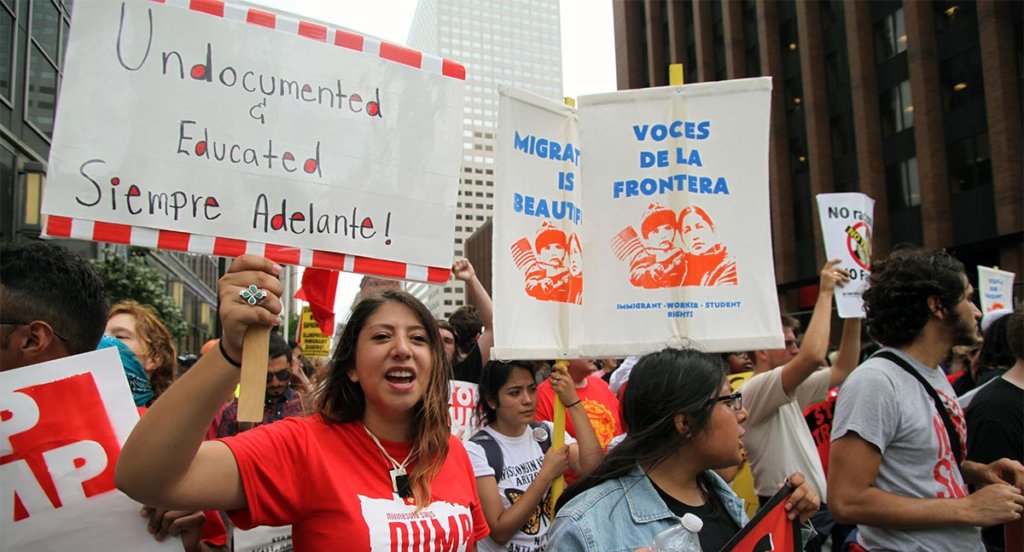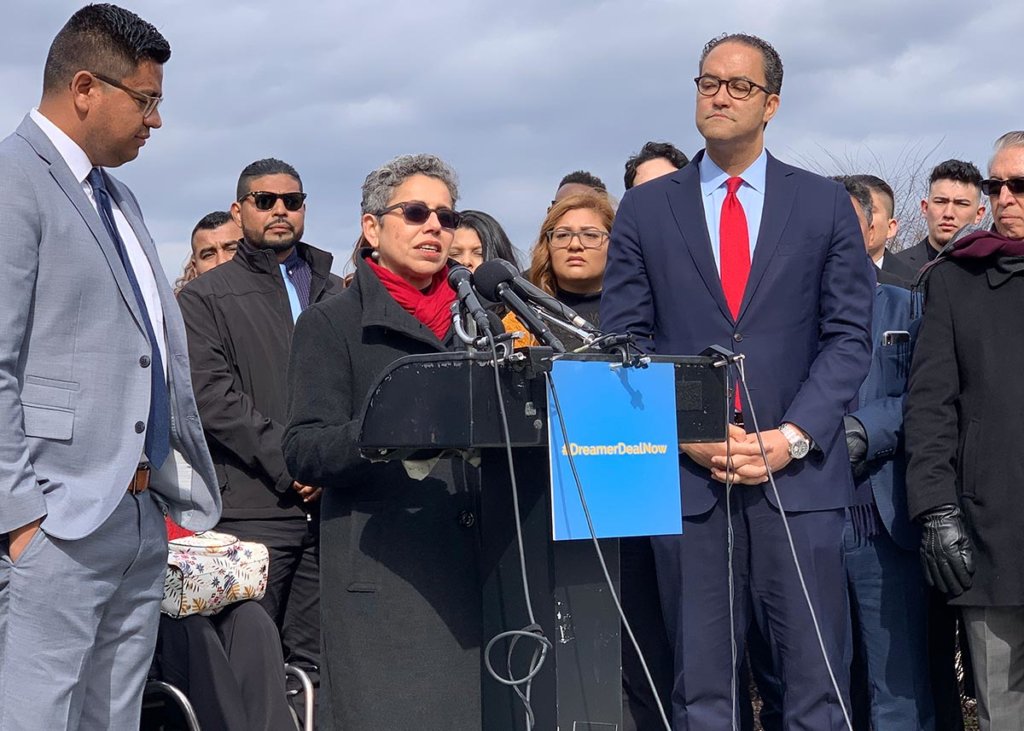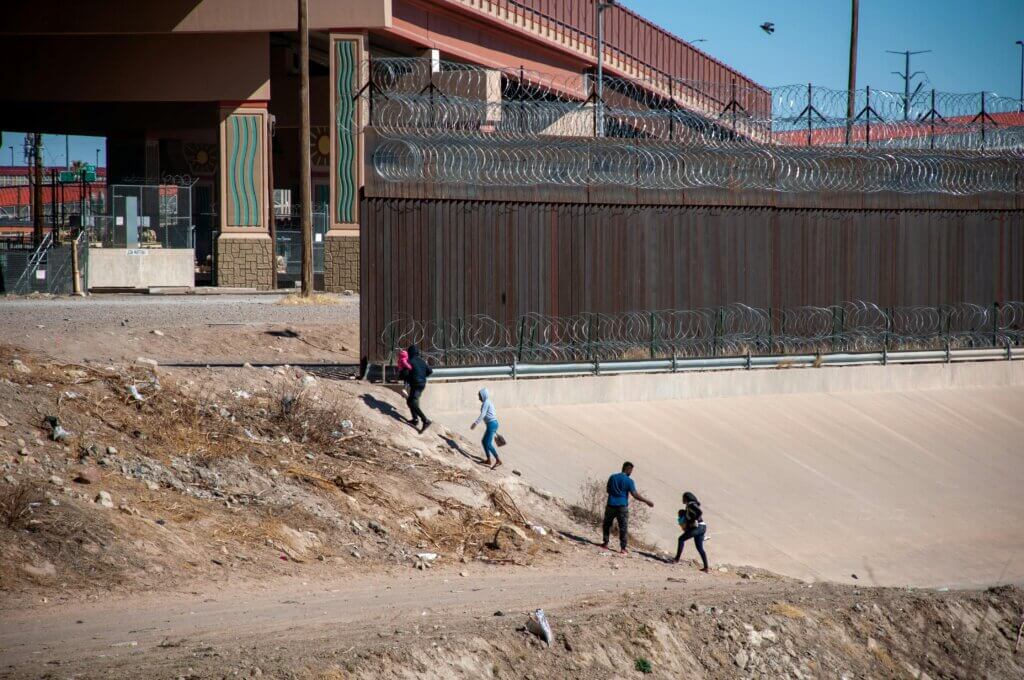No shutdown, but a deal on immigration remains elusive
We look at what’s in the deal signed by Trump and how it affects Latino and immigrant communities.
By Carlos Guevara, Senior Policy Analyst, UnidosUS

Yesterday, congressional leaders passed a deal to avert a government shutdown. Today, President Trump signed the deal into law, adverting another painful partial government shutdown.
Keep up with the latest from UnidosUS
Sign up for the weekly UnidosUS Action Network newsletter delivered every Thursday.
Today Trump also declared a national emergency to divert funds from other government agencies for his border wall. This completely unnecessary and irresponsible move has been rightly condemned far and wide. But it’s important not to overlook what was approved yesterday by lawmakers and signed by Trump.
As we continue to fight for meaningful immigration reform, it’s important to take stock of what is contained in the DHS funding deal, as it could have lasting repercussions for our community.
The sticking point throughout the budget negotiations was the funding for the Department of Homeland Security (DHS. The president has, since the government shut down in December, insisted that he needed $5.7 billion for the construction of a wall on the southern border of the United States. Meanwhile, Democrats have refused to agree to that level of funding for a physical barrier.
So, what’s in the deal that was approved?
- $1.375 billion for physical barriers along the border. There is language within the bill itself that specifies that the only barriers that are being funded are those that conform to currently deployed designs. Critically, concrete border walls as contemplated by President Trump are not among those.
- 11% increase in Immigration and Customs Enforcement (ICE) detention beds. This issue drew a lot of confusion in the lead-up to the pact, but here is the bottom line: in FY2018 appropriators provided ICE with funding for an average of 40,520 beds per day. In FY2019 that critical baseline jumped to 45,274 beds per day. Unfortunately, this means that Congress has just given ICE a powerful tool to carry out Trump’s aggressive interior immigration enforcement agenda.
- No funding for new ICE agents in enforcement and removal operations. However, the deal does include funding for the Homeland Security Investigations branch of the agency, which handles worksite enforcement. This means that ICE has potentially gained greater capacity to conduct those type of operations, which, as we’ve seen in the past year, have wreaked havoc on communities throughout the nation.
What is not in the deal?
- No restrictions on ICE’s ability to transfer or reprogram money. Organizations like UnidosUS have advocated for stricter oversight and restrictions on ICE’s ability to move money around once it overspends its dollars appropriated by Congress. Gone in this version of the bill is a transfer restriction of 10% on ICE’s accounts from earlier deals.
Overspending is already a problem with ICE—they were funded for 40,500 beds in FY2018 and, as of this month, currently have 49,000 people in detention. As a result, without any limits on the amount of money that they can transfer and given ICE’s recent track record, there are significant concerns that this bill does little to curtail that highly problematic behavior.
- Office of Professional Oversight accountability. While the bill does include an increase in facility inspections and in funds to bring ICE in line with the standards that have been set by the Prison Rape Elimination Act (PREA), it doesn’t include any other additional accountability measures to address corruption in the agency.
- Relief for Dreamers and TPS holders. Though not in the purview of this appropriations package, it is concerning that relief was not on the table. At UnidosUS, we were disappointed that our leaders chose dollars over people, especially in a deal that expands, not limits, ICE’s capacity to uproot families and communities.

To be certain, there are some good steps toward accountability contained within the bill, such as public reporting requirements for the agency and restrictions on which records can be destroyed. However, there is little indication that true accountability will be established.
In the meantime, Trump’s declaration of a national emergency this morning further demonstrates that what our country needs now is immigration reform that addresses conditions on the ground, not conditions that have been fabricated by our president.
It’s far past time to end the telenovela and work together to achieve real change for DREAMers and TPS holders.
End this “telenovela.” It’s time for Rs in Congress and the president to finally get real on finding a solution that also provides a long-overdue lifeline to dreamers, TPS recipients and their families who have long called this country home. Read my OpEd: https://t.co/OJNqPMbs8i
— Janet Murguía (@JMurguia_Unidos) January 10, 2019


